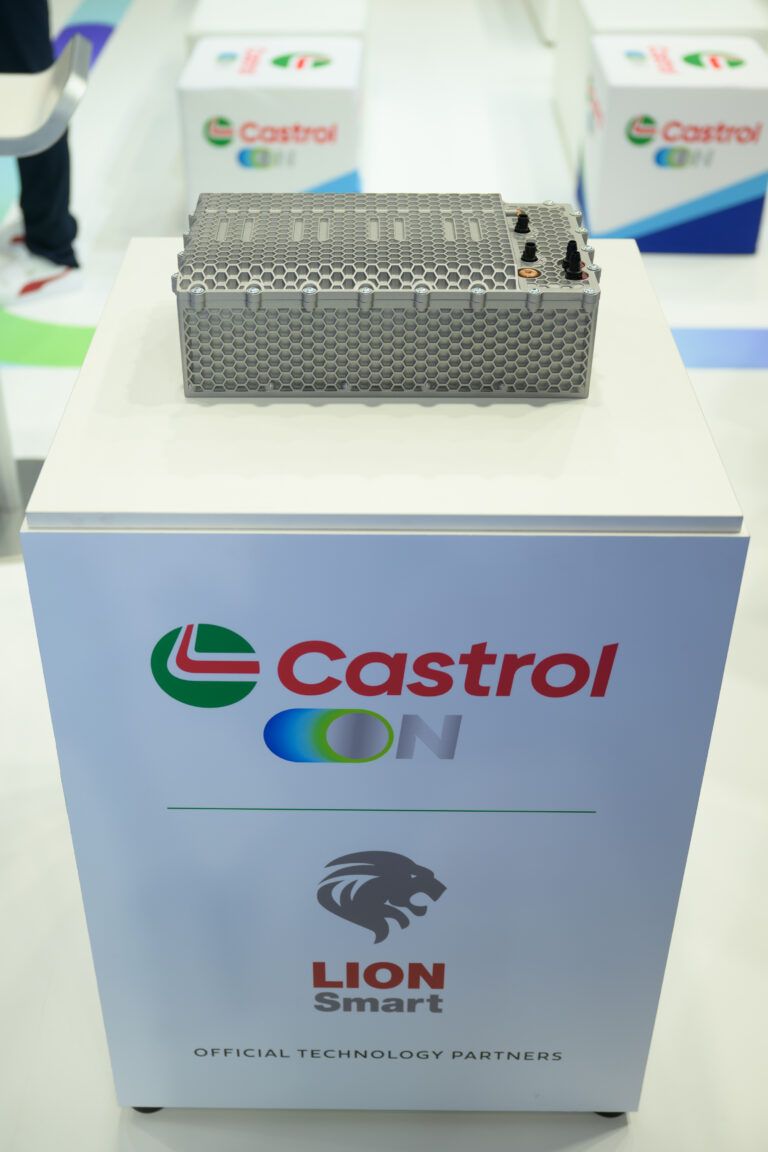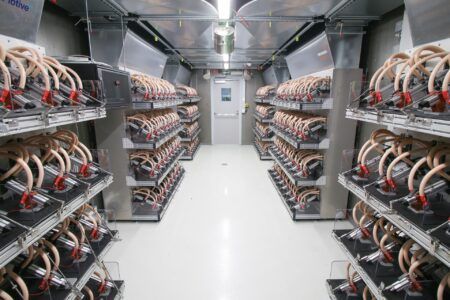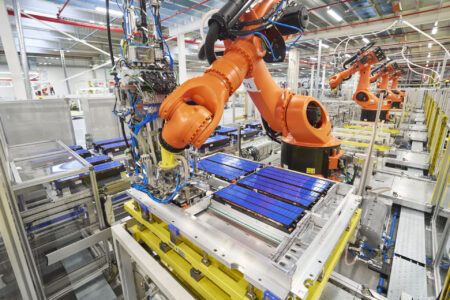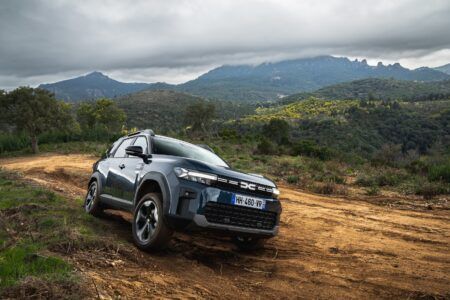Castrol and LION Smart have partnered to develop direct battery cooling technology that immerses cells in dielectric fluid, aiming to improve thermal management, power density, and safety for next-generation electric vehicles and energy storage systems.
Castrol has formed a partnership with Lion Smart to develop an advanced battery module featuring direct immersion cooling technology for next-generation plug-in hybrid and EV battery systems. The collaboration, which combines Castrol’s thermal fluids expertise with Lion Smart’s battery thermal management technology, was showcased at the recent Battery Show Europe, where representatives from both companies demonstrated the innovation in action.
The new battery cooling approach involves submerging cells in a lightweight dielectric fluid, with Castrol ON EV Thermal Fluids used to enable enhanced heat dissipation and improved power density. The partnership aims to deliver significant improvements in battery thermal management for passenger cars, trucks, and battery energy storage systems worldwide through this direct cooling method, where battery cells that produce heat are fully immersed in the cooling fluid.
According to the companies, the battery module has been engineered to provide advanced cooling through a modular design that ensures homogeneous temperature distribution and minimal temperature gradient within each cell. “The structure is configured to help maximise the active cooled contact surface, while a ‘single cell fuse’ reduces potential propagation from internal short circuit,” the companies stated in their announcement.
Lion Smart reports that the innovations in the battery module have enabled the company to significantly advance battery temperature management, with one key consequence being increased power density. “The module is able to improve the efficiency of plug-in hybrids due to higher levels of energy recuperation, greater power at a lower system cost and increased operational safety,” the company explained.
Matthias Donner, Vice President of Advanced Mobility and Industrial Products at Castrol, emphasized the strategic importance of the collaboration. “Direct battery cooling is a transformative technology for EV performance and safety, and this collaboration is a significant step towards real-world deployment,” he said. Donner highlighted that partnering with Lion Smart enables Castrol to demonstrate the full potential of its thermal fluids in advanced battery systems, adding that the collaboration is shaping a future where electric vehicles can charge faster and operate longer under more efficient and safer conditions.
Michael Geppert, Head of Engineering at Lion Smart, described the partnership as pushing boundaries in electrical performance for high-power applications. “Our battery system architecture is designed to push the boundaries of electrical performance in high-power applications, and Castrol’s direct battery cooling expertise is a perfect match,” Geppert said. He emphasized the companies’ shared commitment to delivering next-generation solutions meeting the growing demands of the electromobility sector.
The alliance with Lion Smart represents part of Castrol’s strategic focus on direct battery cooling technologies and battery fluid innovation. The companies showcased how the performance of PHEVs and battery energy storage systems can be enhanced through more efficient cooling and superior thermal balance, demonstrating the technology’s practical applications for industry experts at the Battery Show Europe exhibition.





